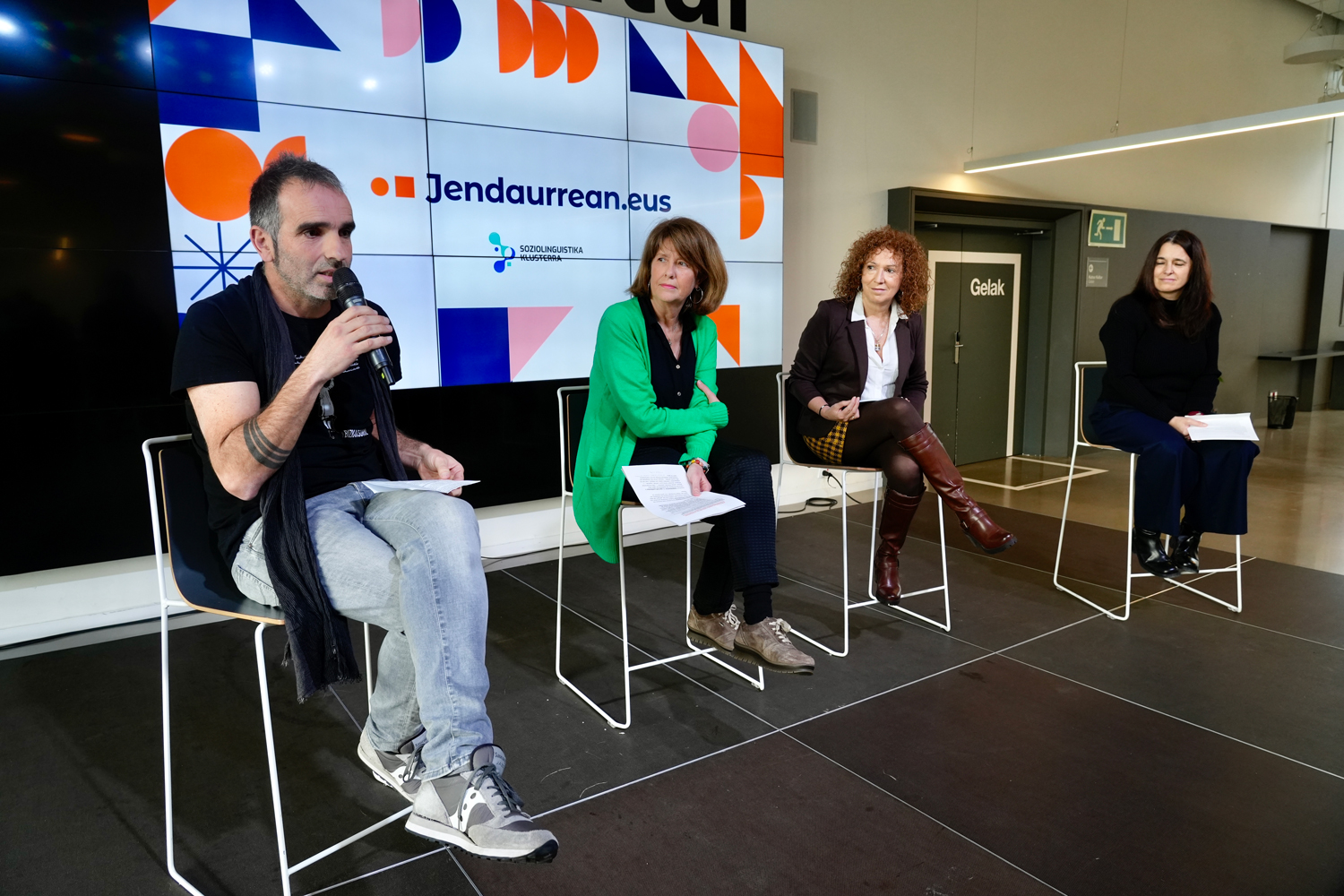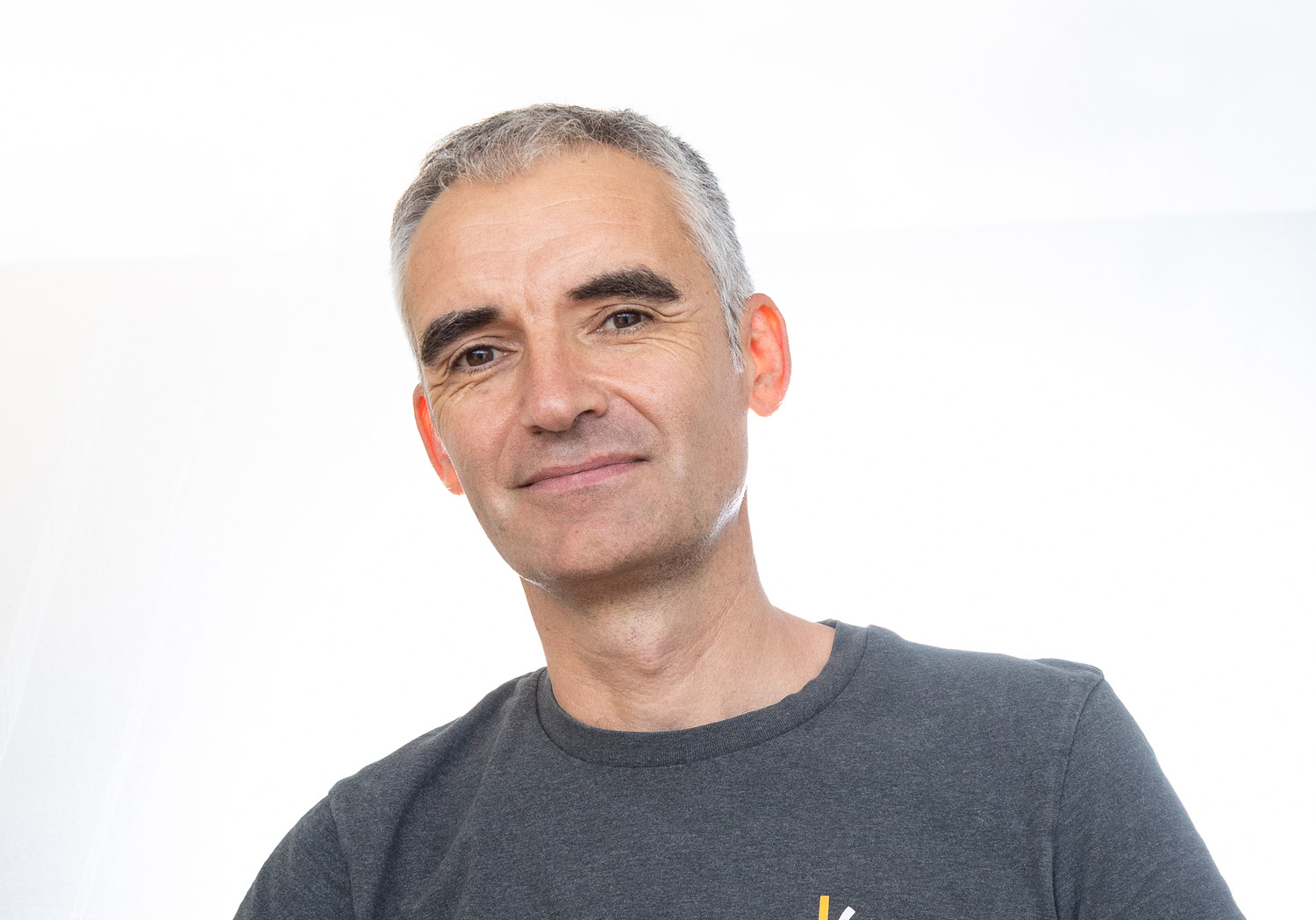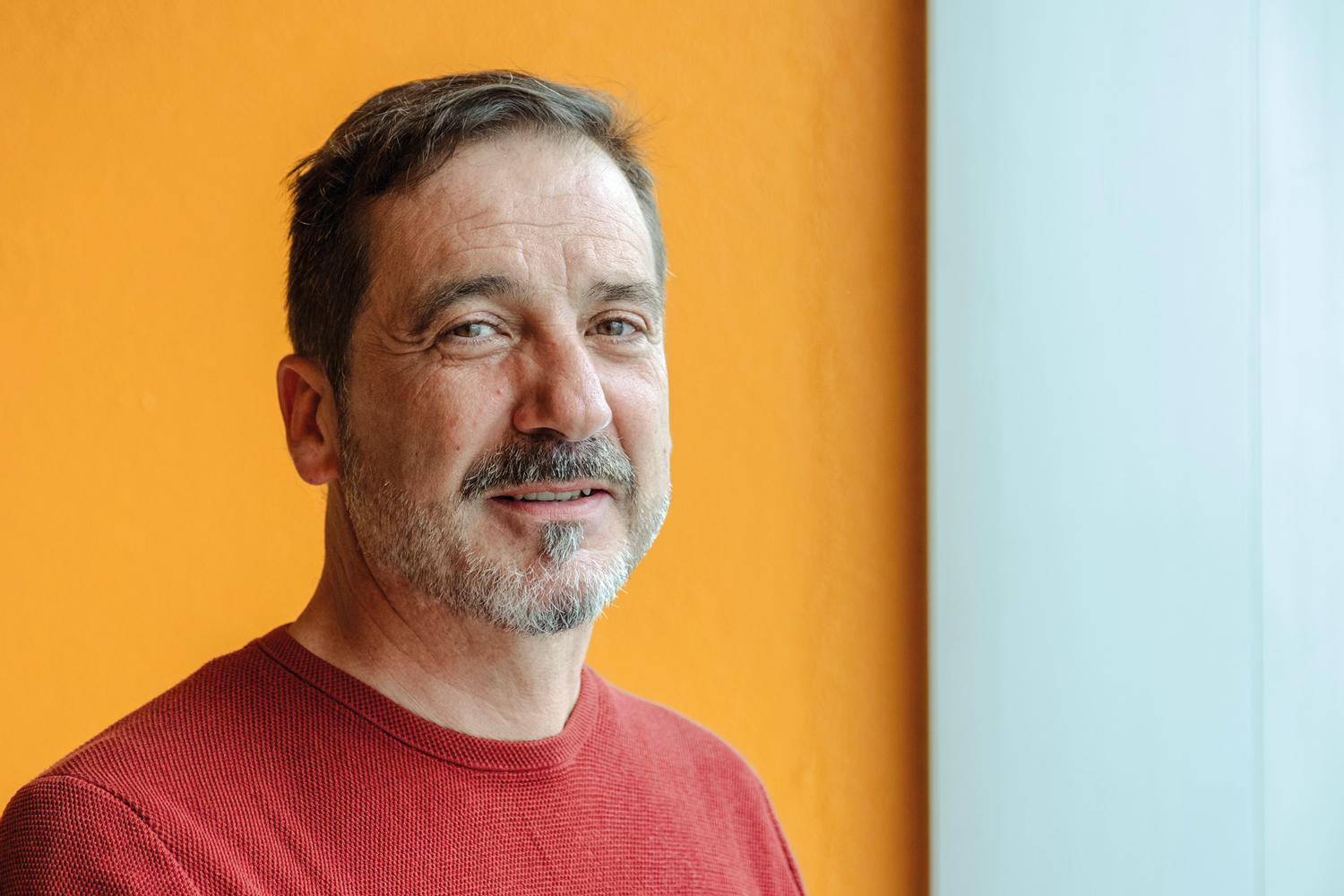“Children understand that Euskera will be the language of children”
- The Heldu Adult Child Initiative will be held from 19 to 29 October in 80 localities of Hego Euskal Herria. The protagonists will be, above all, fathers and mothers, and the Euskaltzaleen Topagunea organisation has underlined two objectives: on the one hand, that parents take steps to change language habits and, on the other hand, that children be an example. We interviewed Jon Zapata, coordinator of the dynamics and member of Euskaltzaleen Topagunea.

What are the objectives of the initiative?
The dynamic is an activation initiative aimed at parents and caregivers of children (family, friends, educators...). It has two main objectives. On the one hand, it provides a general framework for influencing the linguistic behaviour of adults, and in particular those of parents, in order to advance new linguistic attitudes. The second objective is to reflect on the exemplarity of adults towards children. That is, to reflect on the influence of our linguistic behaviors on children.
How does it work? Are the guidelines for the Basque period followed?
It is not actually based on the practice of Euskaraldia, although as in Euskaraldia it is intended to deepen linguistic attitudes. 80 peoples confirm their participation. Local commissions and agents will organise initiatives, talks, exits for children and parents, etc. Protected spaces will be created so that adults can move forward. In other words, the initiatives provide parents with a general framework that allows them to breathe or speak peacefully in Basque. It is not an exercise 24-7 [at all times of the day], but it provides a framework for advancing the use of language in the intervals that last initiatives.
It is therefore not a small Euskaldi.
We're on the Basque line. It is intended to advance in linguistic habits, to make the first word in Basque, to have bilingual conversations... We want to offer the opportunity to create it, but there will be no roles of ‘ears’ and ‘sisters’, there will be no social exercise as such. Social work shall be limited to initiatives.
They say the dynamic has three keys.
Yes, empowerment, awareness and penetration of adults. As for empowerment, we have created the conditions for parents to be able to advance language attitudes, so that they are strengthened. As regards awareness-raising, we highlight the exemplary nature of adults. We also want to explain what roles those who do not work in Basque and understand a little. With Saretzen, we want to strengthen relations between Basque and Basque parents.
Many times we focus on child use, this time in adults. It is very common for adults to do so in Spanish and for children to do so in Basque.
Changing language habits is not a simple exercise. Dynamics among adults in general are approximate to Spanish, but if we ask children and adults for one thing, we are giving that model. Boys and girls understand that Euskera will be the language of boys and that when they get older they will do it in Spanish, because they see it. We don't realize how many things children learn without realizing it.
In this activity, we want to focus on linguistic habits in conversations between adults.
----------------------------------------------------------------------------------------------------------------------
Local initiatives are on this link.
Information on the days to be held in Pamplona on 19 October in the following link.
Plazara, AEK, Uda Leku, Dindaia eta Ebete antolakundeak Baionan elkartu dira Famili'on egonaldi ibiltariaren lehen edizioa aurkezteko. Hizkuntza mailaren arabera eskaintza bat edo beste egongo da eta haur zein gurasoentzat izango da udaberrian.
I think it will have to do with the hangover of the profession, but I have to acknowledge that I look at the linguistic landscape of the places I visit. Signs that stick on the walls, hanging from streetlights, billboards, and supports that appear in shops or companies (signs,... [+]





















